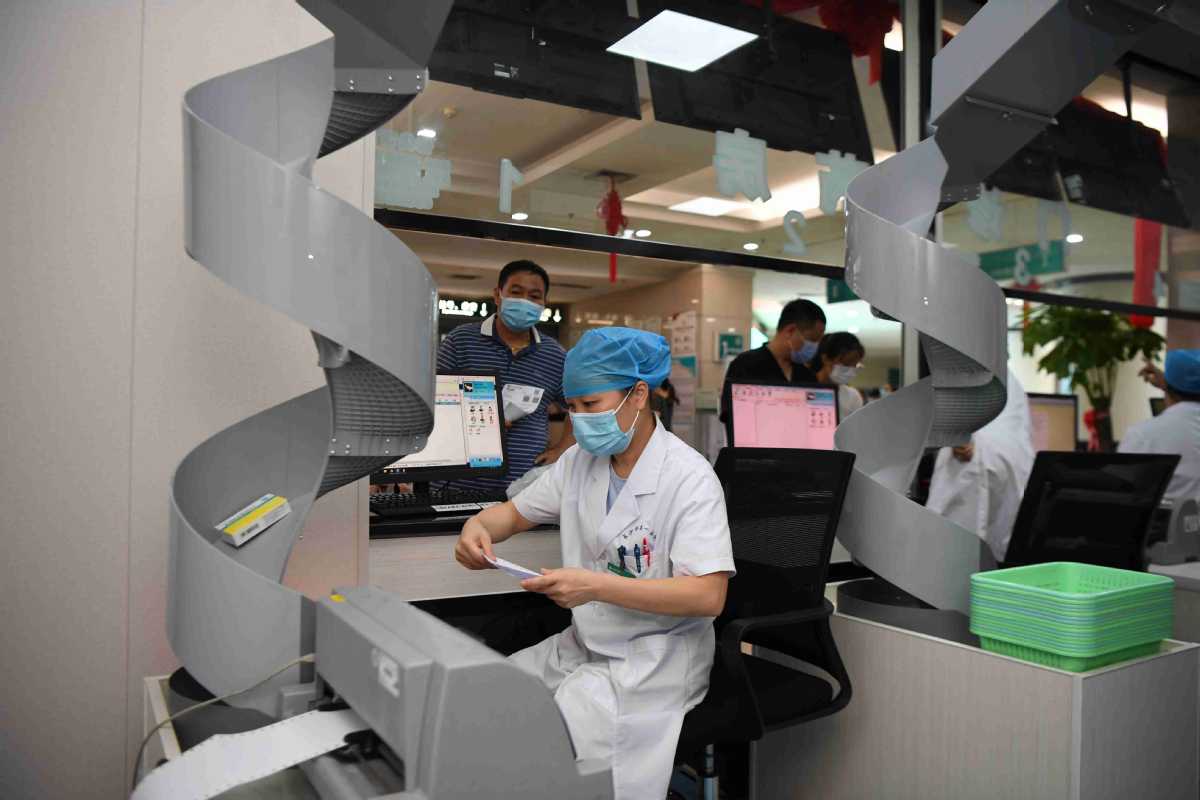Precision medicine grabs more market share


China's precision medicine market is forecast to reach 140 billion yuan ($21.99 billion) by 2024, thanks to growing domestic demand, the aging population and policy support, a recent report said.
The report, released by Qianzhan Industry Research Institute based in Shenzhen, Guangdong province, forecast that the global precision medicine market will reach $178 billion by 2024, and China will become one of the strongest driving forces of that market.
In 2018, the value of China's precision medicine market totaled 55.2 billion yuan, up 16.2 percent year-on-year, the report said.
Precision medicine is a model for high-efficiency, low-cost prevention and treatment of illnesses tailored to individual patients and based on their genetic signature. One major measure of precision medicine is gene sequencing-a technique used by scientific detectives to spot genes that contribute to diseases such as cancer.
Zhao Ping, senior vice-president of the pharmaceutical business department of Shanghai-based OrigiMed, a leading company in the field, said: "Precision medicine takes advantage of big data to lower the cost of drug research and development. A survey from the United States showed that approximately 20 percent of new drugs are capable of reaching the Phase 3 clinical trial stage, and the drug R&D cost is very high, usually between $1.5 billion and $2 billion."
Phase 3 trials are usually more advanced and costly trials involving a larger number of subjects.
"In the drug R&D process, precision medicine picks up the drugs that have good curative effects, which offers guidance in determining the clinical research plan for new drugs. Big data from cancer patients also offers great value in the R&D process of targeted medicines," she said.
In March 2016, the Ministry of Science and Technology launched the country's precision medicine plan, saying that China would invest 60 billion yuan in the field by 2030.It said the central government would invest 20 billion yuan and enterprises and local governments would invest the remaining 40 billion yuan.
Government authorities are making detailed plans to develop precision medicine, including the establishment of a biomedical big data sharing platform, a large-scale R&D system for biomarkers, targets and experimental and analytical technology as well as the inclusion of a group of precision treatment drugs and molecular detection technology products into the national medical insurance catalog.
In addition to governmental support, rising market demand also has promoted the development of the field. Market insiders said that with the population's aging, people's need for high-end, personalized and precise treatment has increased, and the upgrading of medical consumerism has further promoted the market's expansion.
Wang Kai, founder and CEO of OrigiMed, said: "There are vast, unmet, rigid demands from Chinese cancer patients. Currently, domestic precision medicine companies mainly focus on detecting specific genetic markers to decide whether certain targeted drugs are used. However, patients' demands go far beyond that. They want to know about the possibility of using other drugs, and the effects of the drugs. Precision medicine in China contains great potential."
OrigiMed has collaborated with more than 500 national 3A-grade hospitals-the largest and best equipped-and other medical institutions on clinical research about personalized cancer treatment.
On Aug 22, a genetic variation detection kit co-developed by OrigiMed and German pharmaceutical giant Bayer was approved by the National Medical Products Administration. The kit uses next-generation sequencing technology to precisely identify the variation of a specific gene in the body.
Liu Xinwen, chief financial officer of OrigiMed, said: "Precision medicine for cancer is developing rapidly, and there are vast unmet clinical needs. The next-generation sequencing technology offers patients individualized recurrence monitoring, prognostic evaluation and treatment guidance, which truly achieves the whole-process management of patients and increases the possibility of clinical benefit."
Liu added that if the treatment process for each patient is "digitized and structured", big data from genetic testing is "structured, integrated and comprehensively analyzed" and individual treatments are "expanded into replicable innovative treatment strategies", then precision medicine will make further strides in promoting cancer treatment.
Huang Tao, an independent public relations expert, said there are bright market prospects for the field.
"However, completely popularizing precision medicine still has a long way to go. More monetary support is needed. Clinical data, including patients' information related to work, living habits and medical history, are also needed," Huang said.
"The popularization of precision medicine calls for more volunteers from society to offer comprehensive and real information to support clinical research," he said.




































